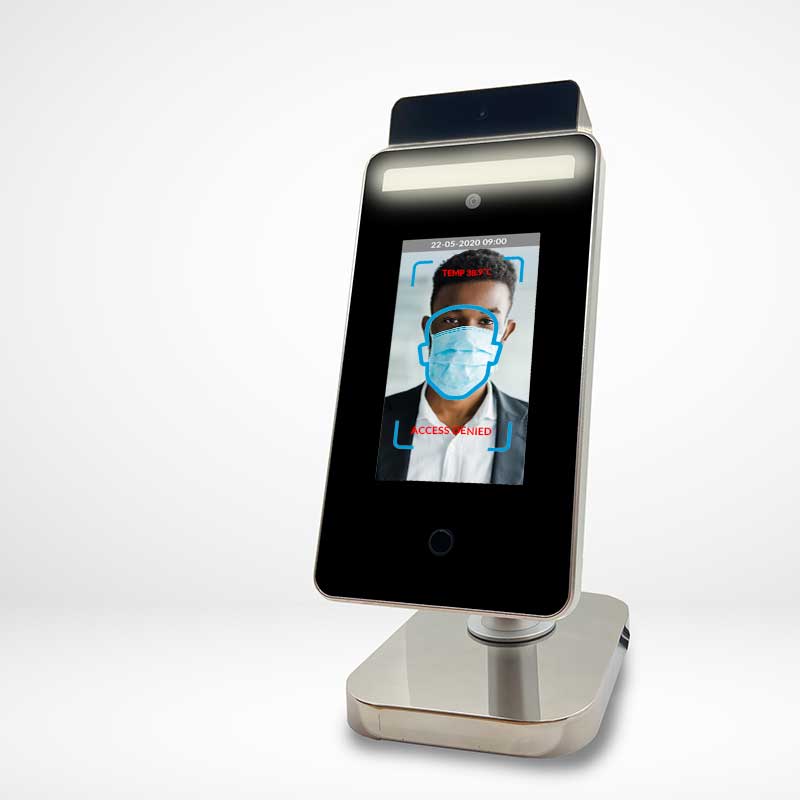
However and whenever sports fans are allowed back into venues, the COVID-19 pandemic has accelerated many of the new technologies that were already in planning and development to make the experience more frictionless than ever before.
Gone — at least for now and perhaps for good — are the days when paper tickets were exchanged for entry into a stadium or arena, or when cash was used for concessions and souvenirs. The ability to enjoy as much of the fan experience with as little interaction between stadium employees and attendees will be the goal for the time being.
“The consumer in general is seeking a ‘don’t bother me’ mentality, a seamless process where they can live inside a venue with as little interaction as possible and still get the food and merchandise they wish without very little person-to-person contact,” said Shawn Tilstra, managing partner for I.S. Partners, which has developed the iR37 contactless thermometer to give temperature assessments for entrants into a venue. “Before, there were all these disruption points and getting rid of those is important.”
IDEMIA is another technology company that has developed 3D fingerprint technology that would allow fans to attend events and be able to go to the venue, enter, enjoy the event and leave with as little interaction as possible.
“You’re going to see various pieces of technology used to make events more secure, more socially distanced, more frictionless, the process of going through checkpoints,” said Donnie Scott, senior vice president of Public Security of IDEMIA. “And that’s whether it’s how you buy and use your ticket to the game, your likeness through the checkpoint and your experience once through the venue.”
Using Biometric Technology
IDEMIA’s development is the MorphoWave Compact, which was used at the Level5 Stadium in Japan for a soccer match last year. Using the technology, fans who were pre-registered were able to enter the stadium without a physical ticket through biometric authentication. Those fans also were able to buy food and beverages by verifying their identity with a wave of their hand at a biometric terminal at the pick-up counter.
Scott said the company has worked before at airports with its experience on screening travelers and what they refer to as passenger facilitation. The idea is that somebody who registers ahead of time is able to use the biometric ID to get into a venue, then use that same digital ticket to order food and drinks or buy merchandise — all without having to interact with other people and with social distancing in mind. The technology allows a person to have an extremely personalized experience down to how much time they need to beat traffic and park at the venue.
“A lot of sports teams and venues, whether concert or entertainment providers, pre-COVID they were focused on what happens to the fan once they get into the space,” Scott said. “With this technology, you can create an identity from the start so you know who the person is before they’re in the venue so you can give them a better experience once they’re there.”
https://twitter.com/IdemiaGroup/status/1305476529141542912
For any technology company, privacy is a question that must be answered. “Historically, if you need age certification for buying alcohol, we handed somebody a physical credential with information on it,” Scott said. He says that with this technology, “instead of sharing a driver license with all of your information, you only share that you’re over 21. The first part of the mobile credential is what you share, the second part of the mobile credential is access to that information and then you can retract that information when you’re no longer sharing it with the venue. We don’t house biometric information. Our vision is you create a decentralized model and you allow the individual who holds the information to allow access only to the information that they want to allow.”
Contactless Screening
The iR37 promotes itself as customizable and allows a user to set a temperature threshold to meet any specific venue policy. With facial recognition technology, the device can identify department personnel and keep record of entry into the facility. The device displays green or red to grant or deny access.
The technology’s developers intend for the iR37 to allow for recording temperatures of coaches and staff daily screening upon entry into a facility with the thermometer mounted on a turnstile, door or wall. Tilstra says the development of the program was in progress before COVID-19 started to spread but the development was accelerated to get it onto the market.
“We were focused on technologies that enhanced the customer journey even before COVID hit,” said Ian Jones, another of the managing partners at I.S. Partners. “When COVID hit and sports went away, we focused on what we can do to help businesses get restarted.”
Jones and Tilstra say when it comes to security, none of the venue’s information could be accessed from the device even if it gets stolen.
“The encryption on it is extremely secure,” Jones said. “You cannot hack it. It’s a fully complete, turnkey system with software built into it.”
And both devices, however used, will increase the use of contactless experiences for fans so that they could return in potentially greater numbers and in a faster timetable than first thought.
“I think you’re starting to see with thermometer screening at entry, then with ordering food and drink from your seat, that’s now going to become the standard,” Jones said. “The Uber of stadiums is next where it’s all in the ticket — get a ride, have your tickets, buy your food all from your phone.”










 Copyright © 2024 by Northstar Travel Media LLC. All Rights Reserved. 301 Route 17 N, Suite 1150, Rutherford, NJ 07070 USA | Telephone: (201) 902-2000
Copyright © 2024 by Northstar Travel Media LLC. All Rights Reserved. 301 Route 17 N, Suite 1150, Rutherford, NJ 07070 USA | Telephone: (201) 902-2000